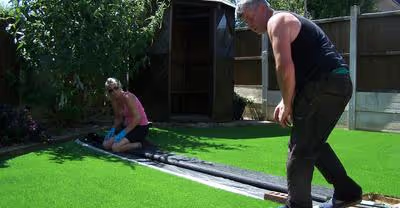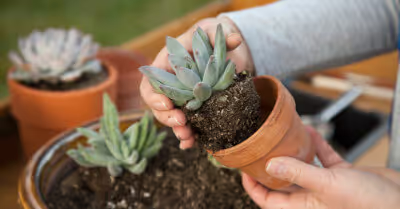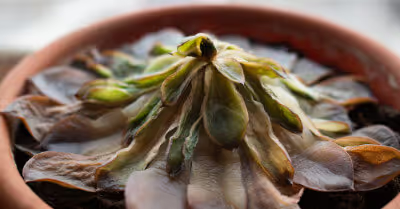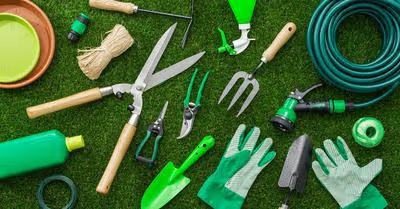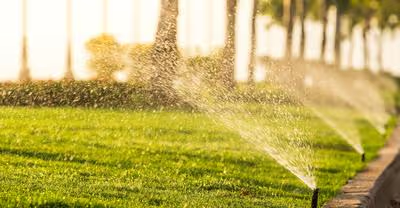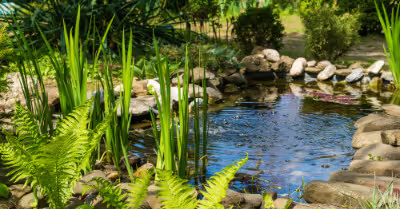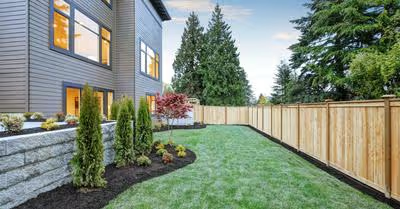Table of Contents
Diploma in Garden Design
When people wonder about the specific qualifications they need to get a certain position, they think about education. This is because some of the most desirable jobs (like doctor or lawyer) require one to have a specific degree.
In those fields, educational qualification is the main qualification. In creative fields like marketing and broader design, the specific degree doesn't matter as much. Recently, the creative industries have solidified their structures to have a higher barrier to entry, making diplomas more relevant.
When you're pursuing a career in Garden Design, with one hundred percent certainty, you can opt for a Bachelor's Degree in a plant-related field like horticulture or botany. But you can also opt for a more conventionally secure bachelor's degree as a backup plan and simply get a Garden Design diploma.
Ultimately, the diploma serves as a good enough acceptance token into the industry, and your connections as well as your experience matter far more than the degree you have. The table below covers different contexts and the recommended choice in each.
Understanding of Plants and Soil
As mentioned earlier, your educational qualification is not the main requirement to be a garden designer. It is a good first step, and its ultimate purpose is two-fold. Your education shows that you have an academic background in the field and that you understand the As and Bs of your work.
What is truly required of you as a garden designer is the understanding of different plants, soil, fertilizers, and overall garden management. You have to know how plants interact with an environment. If your garden results in wild growth that ruins a property, the beauty of the initial design won't save your career.
If you're an amateur gardener, you have this understanding to an extent. You can expand this by experimenting with a wider range of plants and seeds. If you have the relevant education, you can get an internship or a job that helps you deal with a larger variety of plants. Ultimately, knowing your plants is what makes you a garden designer instead of just a 'designer.'
Excellent Communication Skills
In the table, you might have seen that networking was mentioned more than once. That's because it helps you, especially when there is a well-established gardening industry. But that's not the only context in which you need good communication skills. Here are a few situations where your ability to communicate can be handy.
- Get and maintain clients - Garden design is often a sole-proprietorship enterprise as opposed to a strict 9 to 5. Therefore, having the ability to win clients is essential to being a successful garden designer.
- Receive referrals from clients - Garden design is a field where your client doesn't need your services repeatedly in a short period. But when you have good social skills, you can get the benefit of positive word of mouth.
- Build industry connections - In contexts where garden design is a strict 9-to-5, you need to be able to get your foot in the door. With good communications skills, you can make potential employers understand your value.
- Establish joint ventures - If you want to own a garden design business, you need to be able to connect with realtors and house-flippers to create recurring income. Your communications skills can help you make deals where other businesses can bring you work for a cut of your profits.
Project Management Skills
Project management skills are upstream from communication skills. As a garden designer, you need more than just the ability to talk to vendors. You might have to oversee the entire project of planting a garden within a specific time frame. Not every garden designer has to build a sketch, specify the plants, and call it a day. Most garden designers also serve as executives within their own businesses.
Here is how different project management skills can help you become a better garden designer:
- Scheduling and task management - This skill will allow you to smoothly run a gardening operation even when you're not personally planting the seeds or watering the plants. It will allow you to sit more firmly in the designer's seat.
- Risk management - From plants being vulnerable to various diseases to making sure there is minimal chance of wild growth after a garden is established, there are plenty of risk-measuring responsibilities you have as a garden designer.
- Budgeting - When clients assign a specific dollar amount, every creative choice you make must be within the confines of the upper limit of expenditure. This is crucial to having a successful garden design business.
- Critical Thinking - The brief you get from your clients is not always practical. Critical thinking (and negotiation) will allow you to side-step or re-work briefs that are destined to become gardening disasters.
The Differences Between an Amateur Gardener and a Garden Designer
If you've read this far, you know what it takes to be a garden designer. Before we start discussing the exact order in which you need to acquire most of the above qualifications, we must establish how you will set yourself apart from an amateur gardener. The table below clearly outlines what makes one a garden designer.
How to Become a Garden Designer
Now that you know what qualifications are required to become a garden designer let's clarify the route you should take to maximize your odds of a fruitful garden design career.
Have a Relevant Educational Background
Start by getting the right degree and diploma. This is sufficiently covered in the qualifications section above. This is the first step because you can take it at a young enough age, and you don't have to have experience or connections to get started. It also facilitates you in getting said connections and experience.
Get Real-World Experience
Again, this is a step that doesn't depend on others. You do not need anyone's approval to get gardening experience. And even in positions where that kind of approval is required, you don't need much to get it.
You can lend a helping hand to your local gardener. Such an apprenticeship is easier to get than an accounting internship. Real-world experience also sets you apart from those who have only their degrees, which increases your chances of getting a job.
Cultivate Artistic Flair
At the beginning of this article, you might have thought you need someone to 'let you in,' but as you can see, this is the third consecutive step that still requires zero approvals from others. This is a very crucial step, as it allows you to see gardens from a designer's perspective. Engaging in creative pursuits can help you build a better portfolio and get better contracts.
Develop a Small-Scale Portfolio
Finally, we arrive at a step where your success partly depends on others. But as long as you have good communication skills and enough real-world experience, you should be able to implement a small gardening project.
This project can then be used to get an internship or a design role at a small gardening enterprise. Your portfolio is essential to your career, and you have to start small and show your worth as a designer to get better opportunities.
Network With Relevant Stakeholders
Networking is the key to success in most industries. Gardening is no different. Whether you're in a place where there is no scope for garden design or are in a region where there are multiple corporate-style openings for garden designers, you need to be able to network.
In a region with a missing industry, you need to directly network with real estate agents and house-flipping entrepreneurs, so you can get garden revamp projects. And where there are actual garden design jobs, you must network with recruiters, hiring managers, and even random employees of the company you want to work for.
Final Thoughts
The question of the qualifications one needs to be a garden designer is a very broad one. You will spend the bulk of your career accumulating what you need to become a good garden designer. The question right now should be, "what is the qualification that you need to acquire first?" In most cases, that's a bachelor's degree in a plant-related field. And for graduates wondering this, the answer is a diploma in garden design.
Recent Articles



